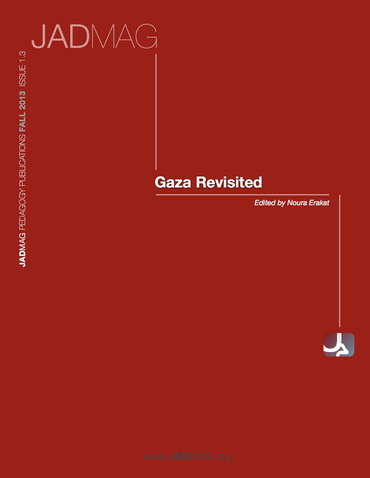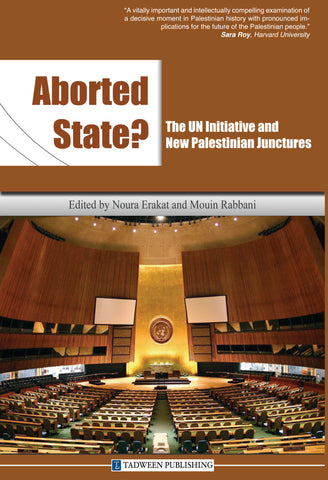This summer, Gaza dominated the headlines. A rising death toll at the expense of Israel’s weeks-long Operation Protective Edge, a death toll that currently stands at over 2,000 killed, once again brought attention to the politics surrounding the Israeli-Palestinian conflict and the devastation of the Gaza Strip. As Gaza fades from the headlines, Tadween Publishing would like to spotlight its two Gaza-focused publications to reignite the discussion and attention to the situation in Palestine.
Gaza Revisited
By Noura Erakat 
Paperback: $7.99
E-version: $5.49
Combo: $9.99
In November 2012, Israel began an aerial bombing campaign against the Gaza Strip that lasted eight gruesome days. Even in its first hours, and before its full magnitude was known, the military campaign sparked urgency amongst observers because of the memory it evoked. In winter 2008/09, Israel conducted a twenty-two day military offensive against the besieged territory. The offensive, infamously known as Operation Cast Lead, killed some 1,300 Palestinians including 280 children, and destroyed twenty-nine schools, sixty police stations, thirty mosques, and 2,400 homes. Thirteen Israelis were killed during the onslaught including three civilians, and four soldiers who were killed by friendly fire. Israel’s military attack unleashed an unprecedented amount of lethal force that raised a slew of moral, political, and legal controversies. Four years later, observers braced themselves for a similar campaign. Operation Pillar of Cloud was not as devastating or long-lasting as its most recent predecessor, but it marked an equally significant juncture in the history of the Palestinian-Israeli conflict.
This pedagogy publication examines the November 2012 military offensive and unpacks historical legacies, legal questions, media portrayals, and political considerations. In doing so, the publication helps create a context for the attack and considers possibilities for the future of the conflict and the balance of power in the Middle East more generally.
The contributions aim to provide context for a conflict that becomes acutely narrow during recurring instances of military confrontation. The challenge is to instill this context in policy, media, legal, and popular discourse in order to move beyond the absurd parity ascribed to parties at war. For one, they are not equal. More importantly, the structural violence of occupation, siege, and de-development never ceases to afflict Palestinians even when their skies are free of the humming of drones.
Aborted State? The UN Initiative and New Palestinian Junctures
By Noura Erakat and Mouin Rabbani 
E-book: $13.99
Paperback: $17.99
This collection of essays, comprising commentary and analysis published in Jadaliyya during 2011-2012 as the Palestinian bid at the United Nations unfolded, examines the Palestinian UN initiative from the key perspectives of strategy and leadership; international law and statehood; US foreign policy; and representation. It also includes more recent material from the 2012 sequel to the 2011 initiative, and relevant appendices.
Like critical junctures before it, the statehood bid marks yet another turning point in the fate of the Palestinian people and their struggle for self-determination. This collection attempts to trace the pulse of political developments leading up to it as well as to highlight the most relevant social, political, and economic elements that will comprise the coming phase.